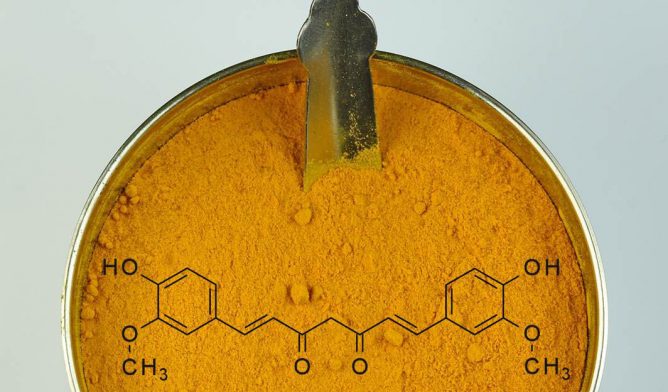Promising Data Supports Curcumin Treatment for Mesothelioma
Research & Clinical TrialsWritten by Tim Povtak | Edited By Walter Pacheco

The plant-based substance curcumin could soon be included in the multidisciplinary treatment of malignant mesothelioma, according to a recent multicenter, international study review.
Curcumin, an active compound found in the common culinary spice turmeric, has been used for decades by some as an anti-inflammatory, complementary medicine for many ailments.
It may soon take a more prominent role with mesothelioma, an aggressive cancer with no definitive cure.
“Our hope is that, in the not-too-distant future, it could be part of new therapeutic strategies for mesothelioma,” Dr. Antonio Giordano, director of Sbarro Institute for Cancer Research and Molecular Medicine at Temple University in Philadelphia, told The Mesothelioma Center at Asbestos.com.
The International Journal of Molecular Sciences published the review on March 7. Dr. Alfonso Baldi, professor at the University of Campania in Caserta, Italy, was the lead author. Giordano was one of four co-authors.
Seven Recent Curcumin Studies Reviewed
The review included the work of seven different studies in recent years that looked at the use of curcumin with mesothelioma tumor cells in various in vivo or in vitro models.
Key Takeaways from the Curcumin Review
- Intraperitoneal administration of curcumin increased survival of mice and reduced the risk of developing tumors.
- Intracavity administration of curcumin significantly decreased tumor mass in the sarcomatoid subtype, inducing abundant necrosis (tumor cell death) in a dose and time-dependent manner.
- Growth-suppressive activity was through the induction of pyroptosis and protection of inflammation.
- Curcumin inhibited angiogenesis (forming of new blood vessels) in the tumor tissue.
- Curcumin reduced tumor-cell migration and invasive ability.
“The data produced up to now is promising,” Giordano said. “Curcumin treatment is able to suppress growth of the tumors and enhance the efficacy of first-line mesothelioma treatment.”
Although there are dozens of clinical trials around the world today involving curcumin and its effectiveness with various cancers, none of those look at mesothelioma exclusively.
Scientists Focusing on Curcumin Method of Delivery
While the anti-cancer activity of curcumin is based on its ability to block the proliferation of tumor cells, its effectiveness is reduced by poor water solubility. It is not well absorbed, making it ineffective in the bloodstream to fight cancer.
Scientists for years have struggled to design a delivery system to make it more effective. They are working now in various combinations, including platinum-based chemotherapies.
One recent study found that the combination of certain chemotherapies with curcumin was more effective than either substance alone.
Most of the success with curcumin has come in the laboratory and not the clinic. Duplicating laboratory effectiveness in humans with cancer has been difficult.
“We need more work to develop the most effective route of administration. A gold standard is still lacking and represents a weak point,” Giordano said. “Yet the data out there clearly suggests that this [compound] can be combined for the treatment of mesothelioma.”
The Sbarros Institute, for example, is currently investigating the pretreatment of tumor cells with permeabilizing electric pulses to make curcumin more effective, capitalizing on its expertise in electro chemotherapy.
Other research has included using curcumin in combination with piperine, an alkaloid of black pepper and long pepper that reduces its metabolism.
“The message that Dr. Baldi and I would like to send to patients and families is this: The path to definitive mesothelioma treatment is still long,” Giordano said. “However, experiments like these deserve to be carried out. Data is promising.”






